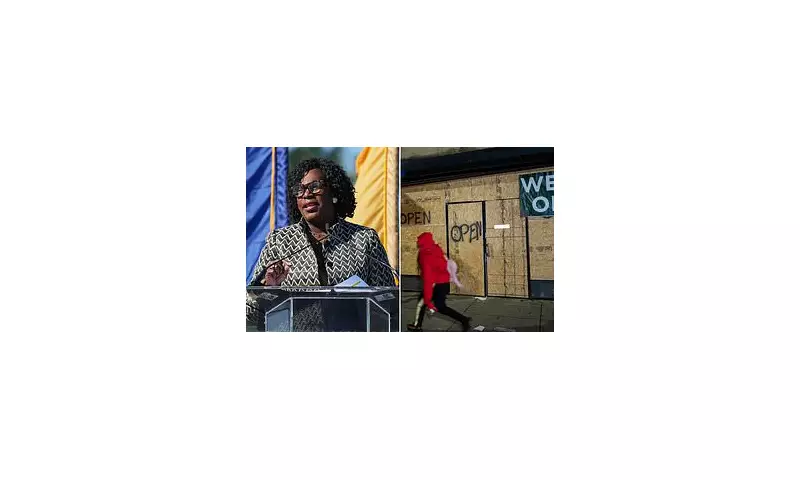
Philadelphia's Mayor Cherelle L Parker has made the significant decision to terminate the city's diversity, equity and inclusion (DEI) contracting programmes, declaring they have failed to deliver meaningful results after four decades of operation.
A Bold Shift in Policy Direction
The Democratic mayor, who made history as Philadelphia's first female leader and first black woman to hold the position, stated the move aims to provide 'access to economic opportunity for all' rather than focusing on specific demographic groups. Parker emphasised that this decision follows legal advice reflecting nationwide changes after recent federal court rulings.
'We need to make a shift to be in compliance with federal court orders, including a ruling from the US Supreme Court,' Parker explained. 'But long before that, we all know that the programmes we had in place were not working.'
Four Decades of Stagnant Results
Philadelphia's DEI initiatives have been operational for 40 years, originally designed to boost participation from diverse businesses in city contracting. However, Mayor Parker revealed that examination of the data showed disappointing outcomes.
'Every time we would look at the numbers and we would want to see how many black and brown and women and disabled business owners were growing in the city of Philadelphia, the numbers became stagnant,' Parker commented during a recent meeting.
Chief Deputy Mayor Vanessa Garrett Harley provided concrete figures supporting this assessment, noting that only 20 percent of minority-owned businesses actually secured city contracts through the DEI framework. 'Obviously, it was not working,' Garrett Harley stated bluntly.
Legal Landscape and Political Reactions
The policy change comes in the wake of the 2023 Supreme Court ruling in Students for Fair Admissions v Harvard, which effectively ended race-related affirmative action in college admissions. The court determined that such policies violated the Fourteenth Amendment's guarantee of equal protection under the law for all citizens.
Not all city officials support Parker's decision. Philadelphia City Councilmember Kendra Brooks of the progressive Working Families Party accused the mayor of 'caving' to Donald Trump's aggressive anti-DEI agenda. 'People want to see leaders fighting for something, and right now we don't see our city fighting for anything,' Brooks told the Philadelphia Inquirer.
Parker firmly defended her position. 'I'm fighting,' she responded. 'But I'm fighting the fight the way I know best: to achieve the results and act and extract the tangible results that I need for the people who live in this city, who own businesses in the city.'
Alternative Approach and Crime Reduction Efforts
The mayor outlined her administration's new focus, which involves providing black and women business owners with access to capital and development tools rather than relying on what she described as 'tick box' DEI contracts. She argued this foundational support is necessary before many businesses can genuinely compete for city contracts.
Parker has simultaneously pursued her tough-on-crime agenda, another key platform that distinguished her from progressive Democrats during her 2023 election campaign. Upon taking office in January 2024, she deployed 75 additional police officers to Kensington, the city's most affected area, resulting in cleared homeless encampments and increased narcotics arrests.
According to Philadelphia Police Department statistics, these measures have contributed to a 13 percent reduction in homicides and a four percent decrease in property crimes, though violent crimes have seen a marginal increase of 0.23 percent.
The national context has shifted significantly with Donald Trump's election in November 2024 on a platform that included cracking down on DEI policies. Within 24 hours of returning to the White House in January 2025, Trump signed executive orders ending DEI programmes across federal agencies, describing them as undermining national unity and violating civil rights laws.
As Philadelphia moves forward with its revised approach to economic inclusion, the city joins a growing national conversation about how best to ensure equal opportunity while complying with evolving legal interpretations of equality and discrimination.





